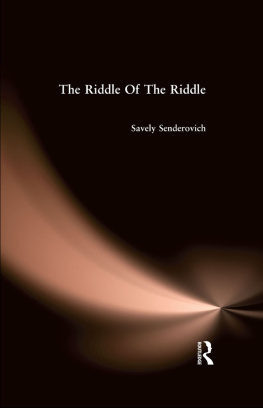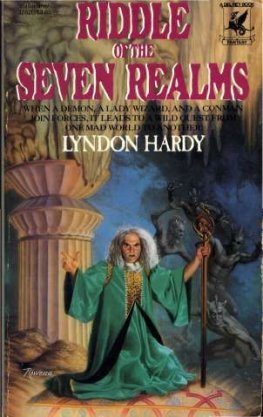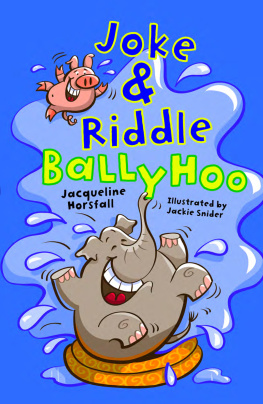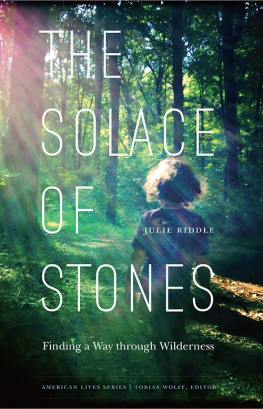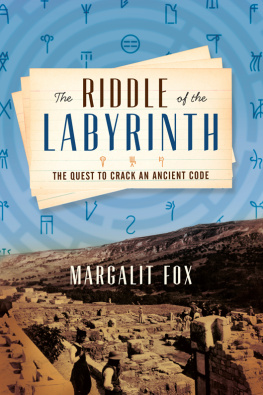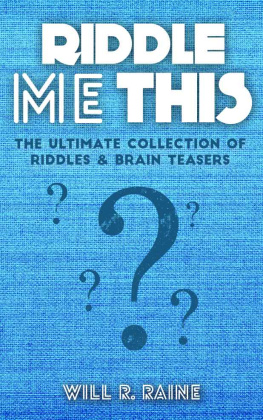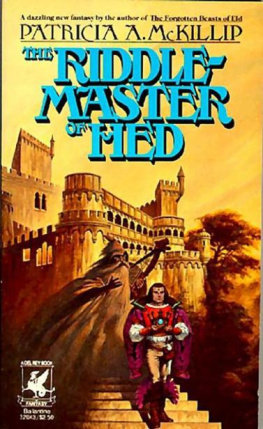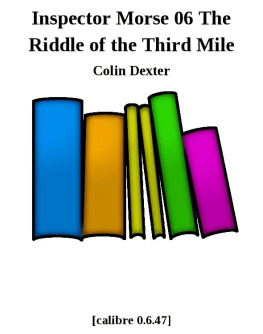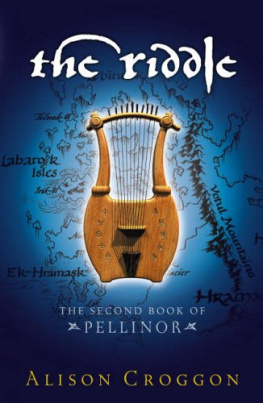
THE RIDDLE OF THE RIDDLE
The true folk riddle from oral traditions that are now rapidly disappearing from the face of the earth is one of the most ancient threads of culture. Truly old specimens of it are succinct, eccentric, poetic, and highly intense. Have you ever tried to guess a folk riddle? If you have, you couldnt fail to notice that the task is impossible. Contrary to common-sense expectations, a true folk riddle cannot be answered. Why so? Because it wasnt meant for individual wit. It was a collective property as concerns both the description and the answer.
The present study delves into the folk riddle from oral traditions by rereading works from the history of riddle study and reconsidering the problems they faced and solutions they found. It unfolds a chain of twenty-six functional and structural conditions that describe how the folk riddle is articulated as utterance. It offers a new and quite unexpected view of the subject. Among other things, the study argues that the true ancient folk riddle is a figure of concealment that has two targets: besides the recorded, explicit answer, it harbors another one, unpronounced and esoteric. The folk riddle, in this light, turns out to be much more hilarious than common wisdom would have it.
Savely Senderovich, born in 1935 in Odessa, USSR (modern-day Ukraine); studied Russian philology at Odessa University, German philosophy at Leningrad University; in 1974 emigrated to the USA; in 1977 earned a Ph.D. in Russian literature at New York University; since 1977 Professor of Russian Literature & Medieval Studies at Cornell University, Ithaca, New York; author of studies in German philosophy, Russian letters from the eleventh through the twentieth centuries (including books on Pushkin and Chekhov), Russian cultural history (including a book on St. Gorge in Russian culture and essays on the origin of Russian historiography), folklore, and literary theory. In recent years he has written over 30 papers on Vladimir Nabokov, both Russian and English, in collaboration with Yelena Shvarts.
www.keganpaul.com
THE RIDDLE OF THE RIDDLE
A Study of the Folk Riddles Figurative Nature
SAVELY SENDEROVICH

First published in 2005 by
Kegan Paul Limited
Published 2016 by Routledge
2 Park Square, Milton Park, Abingdon, Oxon OX14 4RN
711 Third Avenue, New York, NY, 10017, USA
Routledge is an imprint of the Taylor & Francis Group,
an informa business
Savely Senderovich, 2005
All Rights reserved. No part of this book may be reprinted or reproduced or utilised in any form or by any electric, mechanical or other means, now known or hereafter invented, including photocopying or recording, or in any information storage or retrieval system, without permission in writing from the publishers.
British Library Cataloguing in Publication Data
Senderovich, Savely
The riddle of the riddle : a study of the folk riddles figurative nature
1.Riddles 2.Riddles History
I.Title
398.6
ISBN-13: 978-0-710-31178-8 (hbk)
ISBN-13: 978-1-138-98544-5 (pbk)
Dedicated to the memory of two great man
Ezra Cornell and Andrew Dixon White
who made this study possible.
Table of Contents
The very word riddle unfailingly evokes a smile on the face of my interlocutor: Ah! Black and white and red all overan embarrassed zebra. In fact, such witticisms represent but contemporary culture and have little to do with the ancient genre of folk riddle. Closer to the point is the famous Humpty Dumpty with all the kings horses and all the kings men. But even this lovely riddle is a pale scion of the real thing.
The true folk riddle of oral traditions that have been rapidly disappearing from the face of the earth in the last hundred years is one of the most ancient threads of culture. One of the smallest genres of verbal cultureusually under a dozen of words, it is an intensely articulated utterance. It is eccentric and as such breaks every logical mold. There are two main ways for approaching a complicated phenomenon: one way lies through simplification of the complexity and reduction of the unknown to the known, the second cares for nuances and is concerned with adequacy of analytical means to the nature of the subject. This book presents results of a study driven by sheer intellectual curiosity. It does not parade banners of any resonant ism. It will stand or fall on its own merits. Its methodology is devised ad rem, that is, in response to peculiarities of its subject as it opens up to an inquisitive and unprejudiced eye. If along the way it rubs elbows with one or another famous theory, that happens not out of desire to find support there, but due to the affinity of results, which actually signifies less indebtedness to those theories than an independent confirmation of their validity.
This book is a compact presentation of a cumbersome study that lasted for almost a quarter of a century. Its compactness signals a request for attentive readingevery move in it is tightly coordinated with the others and each separate instance of reasoning draws its real strength from this agreement.
I can foresee that the picture emerging from these pages will bring about a frown on the brow of a prude and a knowing glint in the eyes of a cynic. Both reactions are missing the point. Knowledge does not have to be dull. It is enlightening to observe how the most basic and primal in human nature is intertwined with or perhaps inseparable from human culture in its sublime endeavors. The folk riddle affords us such a glimpse.
It seems that we all know what the riddle is about. Curiously enough, students of the riddle are concerned with the difficulty of its definition but not with their understanding of it. Mustnt there be a correlation? Is there any reason to trust the conventional notion of the riddle current in our age? Does it do justice to a phenomenon different from anything in contemporary culture? Is not the riddle a riddle in more than an obvious way?
The condition of riddle studies today is paradoxical. As our access to the treasures of riddle from around the world has been growing, our understanding of the genre has been effectively blocked by the contemporary state of the humanities. This state is characterized by a triple idolatry practiced today in academia. The first and oldest idol is the Last Authoritative Word which looks more preferable than an open-minded investigation. It offers rhetorical models for dealing with problems. The benefits of belonging to any school of thought or trend make the risks of independent thinking look irrational. The second idol is the Dominant Theory. It offers ready-made paradigms which can easily substitute for thinking, although throwing a prt--porter on a new subject is a most untheoretical act, for the humanities, unlike physics, deal with fiercely unique and unpredictable phenomena. The recently proclaimed death of theory has effected little changeeditors of academic presses still want their authors to theorize their work, which actually means marching under the banner of some Authoritative Word. The third idol is the lure of simplified, reductive strategies on a sweeping scale that come into vogue either under the pretense of theory or without any claim to it (e.g., the New Historicism). The taste for portable manipulative devices offered by these three sibling idols has to a large degree displaced the memory of what analysis and reflection are about.
Next page
